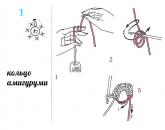Japanese winner of the Nobel Prize in Literature. What is Nobel Prize winner in literature Kazuo Ishiguro famous for?
On October 5, the Swedish Academy announced the name of the Nobel Prize laureate in literature - it was Kazuo Ishiguro, author of the novels The Remains of the Day, Never Let Me Go, and The Buried Giant. Ishiguro is one of the most famous and titled modern English-language writers. Meduza literary critic Galina Yuzefovich explains why awarding the Nobel Prize to Ishiguro is a correct and useful (especially for Russian readers) decision.
His first book, Pale Light on the Hills, in Spain, edited by Anagram, he published in He Speaks of Japan in the 50s through a Japanese who was to immigrate to England. The Artist of the Floating World or Never Leave Me are his other novels. His work has been translated into more than forty languages.
Candidates and previous winners
The Japanese Haruki Murakami, the Kenyan Ngugi Wa Thiong'o, the Syrian Adonis and the Israeli Amos Oz, the Canadian and Italian Claudio Magris or the Americans Philip Roth, Don DeLillo and Joyce Carol Oates. The most recent winners of the Nobel Prize in Literature were Svetlana Alexievich, Patrick Modiano and Alice Ann Munro. When the Academy announced that Dylan was the recipient last year, the singer and songwriter sent a letter excusing himself for "not coming in person" to the ceremony. In this, the singer emphasized that he was awarded this award, but due to work commitments he was unable to take part.
Sometimes the Nobel Committee manages to make a decision in which there is absolutely no desire to look for a second bottom and complex political implications. The current award to the British writer of Japanese origin, Kazuo Ishiguro, is precisely this: it essentially does not need any explanation at all - the award was simply given to one of the most famous, respected, read and discussed prose writers of our time. Not an anti-globalist, not a native of exotic Belize, not a singing poet, not an author of non-fiction, not an animal rights activist, not a refugee, not a rebel, not even an experimenter - just an exceptionally good writer, loved and appreciated throughout the world. Moreover, he is titled and successful - he already has the Booker Prize to his credit for his novel The Remains of the Day. And even those who usually don’t read books at all know about the existence of Kazuo Ishiguro - three of his texts have been filmed, and with an invariably stellar cast: in “The Remains of the Day” the main roles were played by Emma Thompson and Anthony Hopkins, in “The White Countess” - Rafe Fiennes, and in Never Let Me Go - Keira Knightley.
Controversy was caused about its delay in connection with the Academy and the suspicion that the sender was long delayed and because the scientists threatened him not to give the 8 million Swedish kronor that accompanies Nobel Prize, were plagiarism. Sarah Danius, the Academy's permanent secretary, defined the controversy as a "Dylan phenomenon", insisting that it was the most mediatic case for years and confirming that she was happy "that it had already happened".
To date, 109 Nobel Prizes have been awarded in this category, and eleven of them have gone to writers Spanish. Of these over a hundred awards, only 14 were for women. Middle age There are 65 winners, with Ruyard Kipling the youngest and Doris Lessing the oldest.
The domestic reader (the eternal Cinderella at the Nobel celebration) this time can also feel quite confident when discussing the verdict of the Swedish academics: all of Ishiguro’s books, without exception, have been published in Russian, including early and not very well-known ones. Moreover, if desired, you can trace the close family connection between the writer’s creativity and modern Russian literature of the most popular kind. It is known that Boris Akunin was so impressed by the image of the main character in Ishiguro’s novel “The Remains of the Day” - the ideal English butler - that he actually moved him into his detective story “Coronation”. The Russian butler Afanasy Zyukin, who is investigating the kidnapping of a child from the Romanov house side by side with Erast Fandorin, is actually a double of the butler Stevens from Ishiguro's book, who, thanks to the Russian author, received a chance to live his life a little less thoughtlessly.
Although Margaret Atwood seemed strong this year and was the only woman to whistle, taking into account all the Nobel categories, she remained at the door. Once again, Haruki Murakami did not win the Nobel for literature, despite speculation that he was the heavy favorite against strong contenders such as Margaret Atwood and Ngugi wa Thiong'o.
He renewed his origins through writing. One might say that we are confronted with an unprincipled literary man - he wrote seven novels and a book of short stories - if we compare him with his contemporaries. However, his work has been highly praised and can be read in more than forty languages.
However, this formal connecting line, of course, is not the main thing in the relationship between the newly minted Nobel laureate and Russian society. Ishiguro entered Russian cultural discourse as a living and relevant interlocutor, and not a bronze imported classic, primarily because all of his books in one way or another explore a topic that has acquired an unexpectedly loud and somewhat ominous sound in today’s Russia - the topic of collective and individual memory .
Now that he has been awarded the Nobel Prize, now is the time to read Ishiguro. If you don't know where to start, we'll tell you what your most famous and interesting creations are. Little by little they discover the reasons for their isolation and that they are part of a plan to maintain health in the community. It was adapted for the cinema The Buried Giant, the latest from Ishiguro, is a favorite work of the Academy's permanent secretary Sarah Danius. The metaphor of memory and oblivion is framed by medieval knights, dragons and princesses. "The Remains of the Day" gave him success.
“The Remains of the Day” is the story of a day in the life of a retired butler, looking back on his life and realizing in retrospect (somewhat more slowly than the reader does) that he wasted it on worthless trifles and serving the dead gods of social stratification. “The Artist of the Unsteady World” is an amazing deception story: her main character, an elderly art teacher who recalls with imaginary sincerity his life during the war, at some moment, elusive to the reader, turns from a kind grumbler into an immoral monster. Christopher Banks, the detective from the novel When We Were Orphans, who lost his parents under strange circumstances as a child and is trying to find them as an adult, actually chooses between two versions of his own memories: the comforting and the tragic. The heroine of Ishiguro's most scandalous and sensational book, Never Let Me Go, mentally rewinds her life in the hope of finding in the past at least some hint of the possibility of happiness in the future. Well, the writer’s latest novel, “The Buried Giant,” directly poses the question of what we are willing to pay for comfortable collective unconsciousness, and the answer proposed by the writer, frankly speaking, is not very encouraging.
It follows the journey of a butler who takes a holiday for the first time in 30 years, which will take him to secret places in England. ruling class, who was seduced by fascism and actively plotted an alliance between England and Germany. It is inspired by the Japanese world, where Etsuko begins to revisit the past to find an answer to a family tragedy that has just occurred, and may be related to the wounds of war and the trauma of the atomic bomb. Nocturnes is Kazuo's first book of short stories. He collects five stories that can be read as explorations and variations on several subjects, or as a concerto that reveals them in the first movement, brings them together in the next, and resolves them in the last.
In Russia, the topic of relations with memory is one of the most painful and difficult. Looking into the past, we all see things there that are dramatically different ( good example- the recent scandal with Alexei Uchitel’s film “Matilda”), - and these disagreements over long-standing events become the reason for non-illusory conflicts and problems in the present. State rhetoric, seeking support in collective memory, forms a schizophrenic picture of the world, in which, for example, Stalin turns out to be both a bloody executioner who killed people at the Butovo training ground and an effective manager who defeated fascism. In the absence of reliable guidelines and at least some consensus on key historical issues, each person in our country has to build their own system of relations with the past, independently sharpening and, in fact, forming their own memories. And on this painful path, Kazuo Ishiguro is a writer all his life in different ways clarifying the relationship with memory and the past will become an indispensable assistant and guide for us.
The Swedish Academy emphasized that with her novels, “with great emotional power, she discovered the abyss beneath our illusory sense of connection with the world.” If we were to try to define his work, we would say that he has a universal character, where frames such as memory, time and self-deception stand out.
Although, if you are looking for a comparison with other writers, you can follow the opinion of the committee's Permanent Secretary Sarah Danius, who describes it as a mixture between Jane Austen and Franz Kafka, as well as a touch of Marcel Proust and not forgetting the aesthetic universe that Ishiguro has created.
In other words, the current result of the Nobel Prize is a rare case when Russian readers have reason not only to participate in the global rejoicing over good choice and a worthy laureate, but also for a completely personal, separate and intimate joy. Ishiguro is one of those writers (few and rare) who are able to provide very specific, practical help to us and today. And the fact that now, thanks to the Nobel Prize, his name will be heard everywhere - including in Russia - will make the therapeutic effect of his prose as widespread and effective as possible.
Tell us what your novels look like. Japanese-born British writer Kazuo Ishiguro won the Nobel Prize in Literature. The jury's decision emphasizes that "in novels of great emotional power, he discovered an abyss under our illusory sense of connection with the world." The Swedish Academy, which awards the award, emphasizes that the writer “in novels of great emotional power has discovered the abyss beneath our illusory sense of connection with the world.” Once again, the jury's decision contradicts the previous pools led by Margaret Atwood, Haruki Murakami and Ngugi wa Tiong.
Ishiguro was born in 1954 in Nagasaki (Japan). In 1960, his family emigrated to the UK. After graduating from school, he went on a trip to the USA and Canada, where, dreaming of becoming a musician, he played in clubs and sent demo recordings to producers.
Kazuo received a BA in English and Philosophy from the University of Kent and an MA from the University of East Anglia. In 1982, Ishiguro received the status of a British subject.
"If you mix Jane Austen with Franz Kafka and add a little Marcel Proust into the mix, you have a master of writing like Kazuo Ishiguro, while at the same time he is a writer with great integrity who never looks the other way and has created a universe of aesthetics," said committee secretary Sarah Danius, minutes after the award, worth 9 million Swedish kronor, was announced. Regarding his work, he assured: All his works are exquisite, but my favorite is The Mysterious Giant, his latest novel, in which he mixes the comedy of customs with elements of Kafkaesque.
The writer's second novel, The Artist of the Unsteady World (1982), became book of the year in the UK. The third, The Remains of the Day (1989), was awarded the Booker Prize; the committee voted unanimously for the work. This book was used to make a very successful film, which was released in Russia under the title “At the End of the Day.”
Ishiguro is a member of the Royal Society of Literature. His works have been translated into more than 30 languages, including Russian. These are the novels “The Remains of the Day”, “When We Were Orphans”, “Never Let Me Go”, “Where the Hills Are in the Haze”.
His family moved to the United Kingdom when he was five years old, and he returned to his country of birth as an adult. In the late seventies, Ishiguro graduated in philosophy and letters from the University of Kent and studied creative writing at the University of East Anglia.
Ishiguro has been a full-time writer since his first book, Bright Light on the Hills. Both his first novel and his next, The Artist of the Floating World, are set in Nagasaki several years after World War II. The most recurring themes of Ishiguro's career were already present in this book: memory, time, and self-deception. This is especially evident in his most famous novel, The Remains of the Day, which was adapted into film by James Ivory with Anthony Hopkins playing Stevens' butler, obsessed with his work and emotionally blocked.
Kazuo Ishiguro lives in London. His penultimate book, Never Let Me Go (2005), was included in Time magazine's list of the 100 best English novels of all time.
Nobel Prize for Literature
According to the will of Alfred Nobel (1833-1896), the prize in literature should be awarded to the author of “the best literary work of an idealistic orientation.” What was really meant by an "idealistic" work is still a matter of debate.
At the same time, his latest fiction contains fantastic elements. With his pedigree novel Never Leave Me, Ishiguro presented a cold background science fiction in your work. In this novel, as in several others, we also find musical influences. An infamous example of this is a collection of short stories called Nocturne.
Five musical and twilight stories in which music plays an important role in describing the relationships between the characters. In their latest novel, The Buried Giant, a portrait of rugged medieval England, an elderly couple embarks on a journey through the archaic English landscape, hoping to reunite with their adult son, whom they have not seen for years. This novel explores, in motion, the relationship between memory and oblivion, between history and the present, and between fantasy and reality.
This prize has been awarded 109 times to 133 writers, of which 14 were women. At the same time, 28 Nobel laureates wrote or are writing in English, 14 - in French, 13 - in German, 11 - in Spanish, seven - in Swedish, six - in Russian, one - in Chinese. Last year, American poet and musician Bob Dylan won the Nobel Prize in Literature for "creating poetic images in the great American song tradition."
In addition to his eight books, Ishiguro has also written scripts for film and television. Between his last two novels, Never Leave Me, and The Buried Giant, spent a decade that became a very long time for his followers. The reason for the delay was that his wife encouraged him to discard the first pages of the novel and start again, using more direct language than in the first attempt, as he explains in this interview, in addition, at the time, he published a collection of stories by Nocturnes. participated in the film adaptation of Never Back Down and spent a lot of time collecting his personal files to sell to the University of Texas.
In total, the Nobel Prize has been awarded 579 times since 1901. 885 people and 26 organizations became laureates.
The award presentation at the Stockholm Philharmonic will take place on December 10, the day of the death of its founder Alfred Nobel. From the hands of King Carl XVI Gustav of Sweden, the laureates will receive a gold medal with the image of the founder of the most prestigious award and a diploma, and the next day the Nobel Foundation will transfer the due monetary component to their bank accounts. The monetary component of this award has increased by 12.5% this year and reached 9 million crowns ($1.12 million).
In the latest editions, musicians Bob Dylan, Belarusian journalist and writer Svetlana Alexievich, and French writer were awarded prizes. The British writer was born in Japan and moved with his family to the United Kingdom when he was five years old. What Remains of the Day was his most applauded novel.
Kazuo Ishiguro, 62, has been awarded the Nobel Prize for Literature, the Swedish Academy in Stockholm announced. According to the Swedish jury, Ishiguro writes “novels of great emotional power” that reveal “an abyss beyond our illusory sense of connection with the world.”
Popular
- Calculation of old age pension, or counting your pension yourself
- How I brought my husband back to the family
- DIY hairstyles for shoulder-length hair
- Uterine tone during pregnancy: symptoms, increased cervical tone Prevention of uterine hypertonicity
- Fashionable New Year's hairstyles for girls
- How to sew a hair tie (detailed master class) Do-it-yourself elegant hair bands
- Summary of the lesson on artistic creativity “New Year's toy
- Crochet for Beginners
- Work experience of an individual entrepreneur (IP, pboyul) Confirmation of work experience of an individual entrepreneur
- How to determine your color type of appearance test online Take a beauty test for girls




